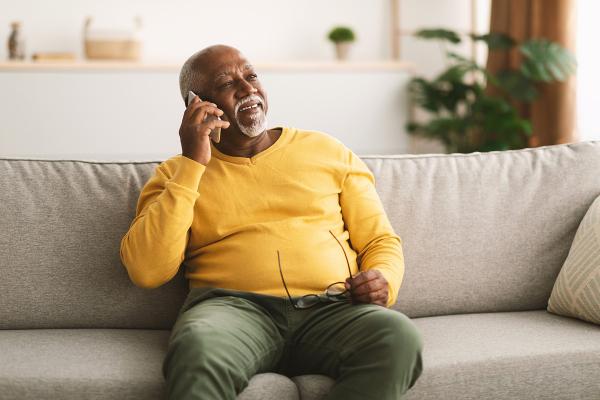
It may be time to get your hearing checked. AARP Hearing Solutions makes it simple. Find a provider today.
Ready to head outdoors for some warm-weather fun? These tips can help you protect your ears and hearing while you’re enjoying the season.

Summer is a great time to kick back. It’s the season for road trips, weddings, fireworks and other festivities. Whether you’re lounging by the pool, heading to the beach or just relaxing in your backyard, summer offers plenty of opportunities to unwind.
But some warm-weather outings and chores may raise the odds of hearing loss — if you don’t safeguard your ears.
Protecting your hearing is important year round, but here's what to pay extra attention to during the summer months.
If you have a yard, you might spend time mowing the lawn and whacking weeds. And those machines could lead to hearing loss, says Joe W. Griffith, III, Au.D. He’s an audiologist and the owner of Accessible Hearing Aids in Metairie, Louisiana.
“Noise damage has two factors to it: the loudness of the noise and then the time spent around that noise,” he says. “The louder the noise is, the less time you can spend around it before damage can occur.”
That goes for any sound over 85 decibels. The noise from gas lawn mowers is about 91 decibels.1 And power tools for weeding are louder because the engine is closer to your ears, says Griffith.
If you’re using either tool for more than 15 minutes, wear safety earmuffs. Earmuffs are easy for most people to place correctly over their ears, Griffith explains. So they do a better job at blocking noise than the foam earplugs some people wear. With foam earplugs, you might not insert them securely enough to get the full protection.

It may be time to get your hearing checked. AARP Hearing Solutions makes it simple. Find a provider today.
Make sure you get all the water out of your ears when you dry off. Otherwise, the moisture in your ear canal could become a breeding ground for bacteria.2 And that might cause an outer ear infection called swimmer’s ear. Symptoms may include:3
If you suspect you have swimmer’s ear, see your primary care provider (PCP). They can prescribe ear drops to clear up the infection.
To prevent infections, follow these steps to dry your ears after swimming:2
Other ways to help prevent swimmer’s ear? Wear earplugs or a swimming cap that will keep water out of your ears.2
There’s no firm rule about when to go for a hearing exam and consultation. But if you work in a noisy place, you might want to get your ears tested once a year.4 It’s also a good idea to get a baseline hearing test if you’re 50 years old or older.5 That’s the age when people start to notice some hearing loss.
And if you haven’t scheduled one yet, summer is a good time to get it on your calendar. Whatever the result, you’ll be glad you did.
Not sure you’re ready for a hearing test? You can take a preliminary hearing test online. While it doesn’t give you official results, it may help you decide whether you need to get a comprehensive consultation and exam from a hearing care professional.
(If you belong to AARP®, you can request a no-cost hearing exam and consultation through AARP® Hearing Solutions™ provided by UnitedHealthcare Hearing.)
The sound of a firecracker or fireworks from 3 feet away is about 150 decibels.1 And that’s really loud. But the damage depends on how close you sit to the display.
“If you're in a big park and they’re on one side of the park and you're on the other, you're going to hear it loudly, but it's not going to rise to the level of noise damage,” says Griffith.
To protect your ears, sit as far away from the show as you can. And if you’re the one setting off fireworks, wear safety earmuffs, says Griffith.
Parties with bands or DJs can get loud — whether or not you’re on the dance floor. But there are several ways to protect your hearing.
Hot, humid summer weather can be tough on hearing aid users. “People are usually outside more,” says Griffith. And that may cause sweat, pollen and dirt to get onto your hearing aids.
It’s a good idea to get into a regular cleaning routine. Talk to your hearing care professional. They’ll probably provide tools and teach you the best way to care for your devices.
If you sweat a lot or live in a humid place, invest in a drying kit, suggests Griffith. Pop your hearing aids in the kit at night when you’re not wearing them. (Some drying kits double as chargers.) That can help prevent moisture damage.
These tips will help protect your hearing — and your hearing devices — all summer long.
Did you know that you may be able to request a no-cost hearing exam and consultation through AARP Hearing Solutions? Request an appointment.
Sources
Information is for educational purposes only and is not a substitute for the advice of a licensed medical provider. Consult your provider prior to making changes to your lifestyle or health care routine.
AARP Hearing Solutions is available to all AARP members and does not require a health insurance plan from UnitedHealthcare. The AARP hearing program discount cannot be combined with any other discounts, promotions, coupons or hearing aid benefit plans unless noted herein. Products or services that are reimbursable by federal programs including Medicare and Medicaid are not available on a discounted or complimentary basis. AARP commercial member benefits are provided by third parties, not by AARP or its affiliates. Providers pay a royalty fee to AARP for the use of its intellectual property. These fees are used for the general purposes of AARP. Some provider offers are subject to change and may have restrictions. Please contact the provider directly for details. UnitedHealthcare Hearing is provided through UnitedHealthcare, offered to existing members of certain products underwritten or provided by UnitedHealthcare Insurance Company or its affiliates to provide specific hearing aid discounts. This is not an insurance nor managed care product, and fees or charges for services in excess of those defined in program materials are the member's responsibility. UnitedHealthcare does not endorse nor guarantee hearing aid products/services available through the hearing program. This program may not be available in all states or for all group sizes. Components subject to change.
Network size varies by market.